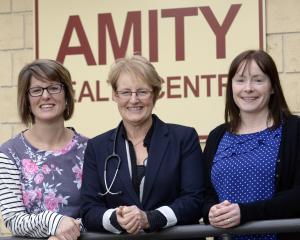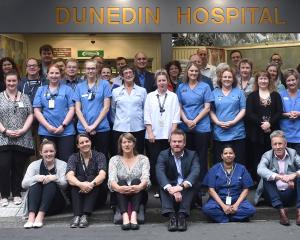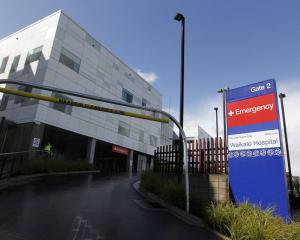Dunedin Hospital's emergency department specialists are "probably consuming a lot of paracetamol" because they have been "banging their heads against a brick wall for so long", Association of Salaried Medical Specialists executive director Ian Powell says.
Commenting on the call by ED clinical leader Dr John Chambers this week for an urgent multimillion-dollar revamp of the stretched department, including extra staffing, Mr Powell said the board had under-estimated the importance the Government placed on the target six-hour time for patients to be either admitted to hospital or treated and discharged.
Dr Chambers pointed out that Dunedin Hospital's ED was the lowest performer nationally, with the target being met for only about three-quarters of patients.
Mr Powell said the board had focused too much on the "front door rather than the back door" of the department.
Generally, the department coped "pretty well" with patients it could treat and send home, but it had struggled to get patients into the rest of the hospital.
Management had not listened sufficiently to advice from ED specialists about this.
He acknowledged the financial difficulties facing the board, which has yet to have its district annual plan, with a $14.9 million deficit, signed off by Health Minister Tony Ryall.
However, it was a matter of priorities and this issue needed to be "there among the top of the priorities".
Mr Powell said management had "hummed and hawed" on the issue for too long in a "state of denial".
Waitemata, the other board that was performing poorly in this area, had recognised something needed to be done and had plans to turn it around.
Dr Chambers had been "particularly brave" to speak out and had done so because of concern about the quality of care, Mr Powell said.
Concerns raised recently by ED nurses about their ability to care for the number of patients in corridors have resulted in the allocation of extra temporary nursing staff to the department.
New Zealand Nurses Organisation organiser Lorraine Lobb said three full-time-equivalent positions had been allocated for three months.
"It's a start. Hopefully, in the interim, things can be looked at to make sure that people who are there are there at the right time doing the right stuff."
Some of the change that might be needed could involve start and finish times, something members would need to be consider.
For instance, if several staff started work at 7am but were not really needed until 10am, it might make more sense to have people starting later and working later.
She felt members would not disagree with Dr Chambers, but they would also be aware of the board's financial restraints.
There were different ways of working that might not cost a lot of money, but it was a matter of "getting out there and talking to people and getting ideas, rather than telling people what to do. That doesn't really work."
Among the work begun or proposed by management is computer modelling to test various possible scenarios in ED, employing an acute medical admitting registrar, and analysing the journey of orthopaedic patients.
Nursing leaders are also developing a case to support the introduction of a 12 to 18-month project analysing how well nursing staff match requirements in all areas of Dunedin and Invercargill hospitals and how computer software could be used to better manage this.
This work is expected to be relevant for other sections of the board's workforce.
Board chief executive Brian Rousseau has stated the board is in no position to make a special case for a multimillion-dollar upgrade as proposed by Dr Chambers.











